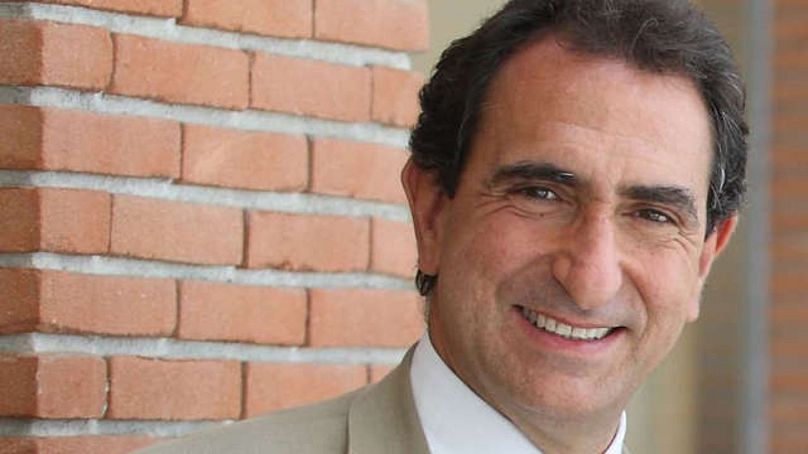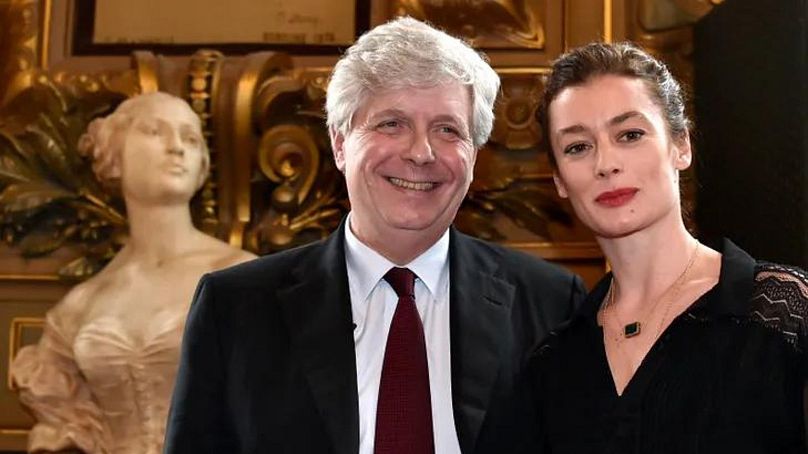Recent restrictive measures indicate that the Italian far-right executive is taking control of more and more cultural institutions.
After the resignation of the head of the RAI - Radiotelevisione italiana, the national public broadcasting company of Italy - this week and the planned departure of prestigious opera directors, all signs point towards Prime Minister Giorgia Meloni's far-right government Fratelli d'Italia (Brothers of Italy) increasing its efforts in taking over the country's public cultural service.
 ADVERTISEMENT
ADVERTISEMENT
 ADVERTISEMENT
ADVERTISEMENT
Alongside the rehabilitation of Mussolini, laws against same-sex couples, and the reported intimidation of news outlets, the executive is placing trusted individuals at the head of prestigious public institutions in moves that critics are calling reminiscent of the country’s fascist past.
On Monday 8 May, the head of RAI Carlo Fuortes announced his resignation. The head of Italy's main public broadcasting group justified his departure by saying that he was being pressured by his supervisory authorities.
In a letter to the Ministry of Economy and Finance, the former head of RAI said he refused to accept changes to the editorial line and programming that the Italian Prime Minister's government is trying to impose, changes he did not "consider to be in the interest of the RAI".
Appointed by the previous government of Mario Draghi, Fuortes stressed that "since the beginning of 2023, there has been a political conflict concerning my position and my person, which is weakening RAI."
Previously, the Brothers of Italy party had filed a complaint against Fuortes with the broadcasting regulator in September 2022, taking issue with the presence on air of the French philosopher Bernard-Henri Lévy, who had criticised the Italian right.
Other departures are expected to follow, and opponents have made it clear that they see these changes as representing the beginnings of a full takeover of public service culture by the ultra-conservative executive, the most right-wing government Italy has seen since the end of the Second World War.
"Fuortes' resignation marks the beginning of manoeuvres for the total control of public broadcasting," has stated Nicola Fratoianni, a member of the Chamber of Deputies and Secretary of Italian Left.
According to Roberto Zaccaria, former president of the RAI, professor of constitutional law and former left-wing MP, the government “does not even have the patience to wait for the normal term of office."
"One must have respect for the institutions and not manipulate them to satisfy one's own political and personal demands," stated Zaccaria.
To make amends, however, the government is reportedly considering giving Fuortes the direction of the Naples Opera, since he was head of the Opera Theatre in Rome before his job at RAI. Which segues into another major change on the cultural landscape which seems to confirm the opposition’s fears.
Indeed, two opera directors of French nationality are expected to lose their jobs due to a new measure, adopted last Thursday by the Council of Ministers, which requires all foreign directors of opera houses who are over 70 years old to leave their posts by 10 June at the latest. The measure was immediately dubbed the "Fuortes article" by the media.
As a result, Stéphane Lissner, the French director of the Naples Opera Teatro di San Carlo, should be leaving his job, which should allow Fuortes to be rehired. Lissner, 70, was the former head of the Paris Opera and will be the first foreign director to leave his post.
The president of the Campania region, Vicenzo de Luca, has said that he is in favour of the decree because Stéphane Lissner's salary is too high and he has not succeeded in setting up the "Neapolitan Renaissance", a project that consisted of hiring great voices at San Carlo, according to Corriere Della Sera.
However, Italian daily Il Foglio has reported that Stéphane Lissner has already hired several lawyers and is determined to stand firm.
According to the same decree, Dominique Meyer, head of La Scala in Milan, 67, is also targeted by the age limit in 2025.
Radical reforms
These measures, while heavily criticized, are in line with Meloni’s far-right profile and electoral promises.
She has issued a first decree-law which criminalises the organisers of rave parties, penalised the use of English words in formal documentation by pushing forward new legislation with fines of between €5,000 and €100,000, and has been pushing for Italy to become the first country in the world to ban its companies from producing lab-cultivated meat.
Meloni has already blocked LGBTQ+ couples from registering their children in the civil registry, and said earlier this year that her belief is that "a child deserves only the best: a mother and a father", a statement which has lead Italy's LGTBQ+ community to accuse the prime minister of trampling on same-sex couples' parental rights despite the country already having some of the weakest in Europe.
As recently as Labour Day, 1 May 2023, she announced the abolition of the "citizenship income" and the easing of fixed-term contracts. No sooner had her opponents cried foul than the prime minister had moved on to attack cultural public services.
And while these plans to transform the country’s cultural spaces seem on brand for Meloni, they represent a further step that fuels ongoing fears of more pronounced populist and authoritarian drifts.




















